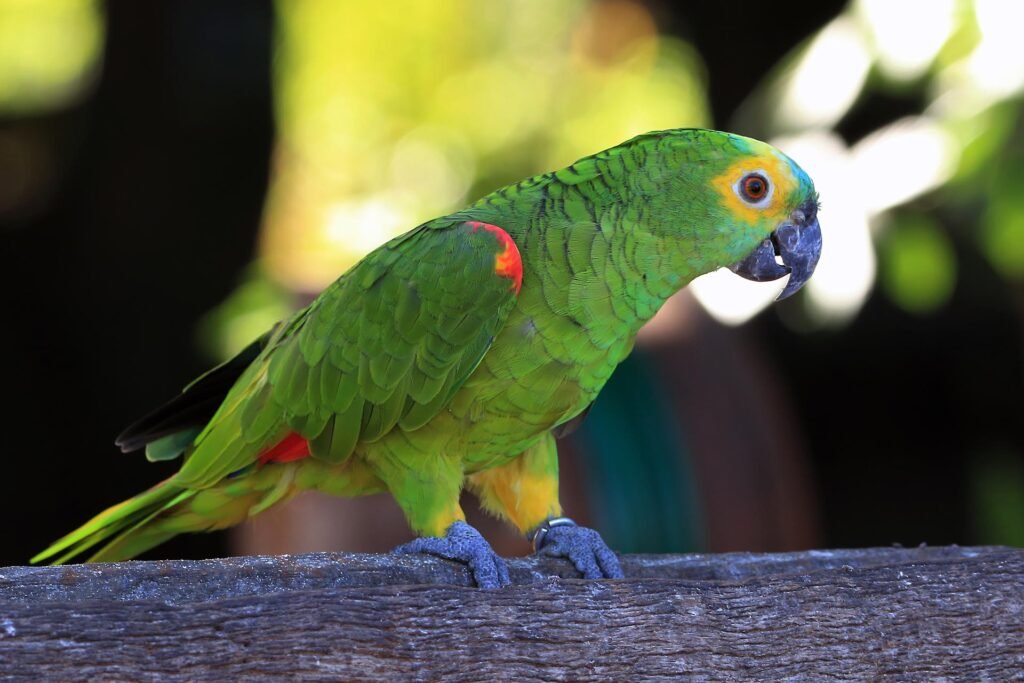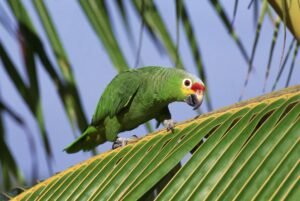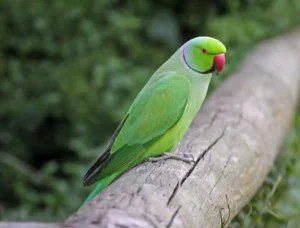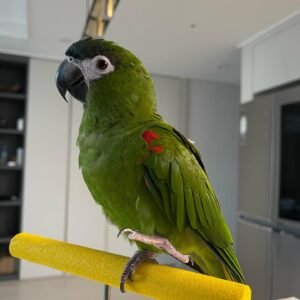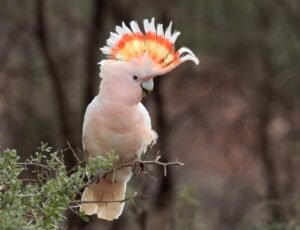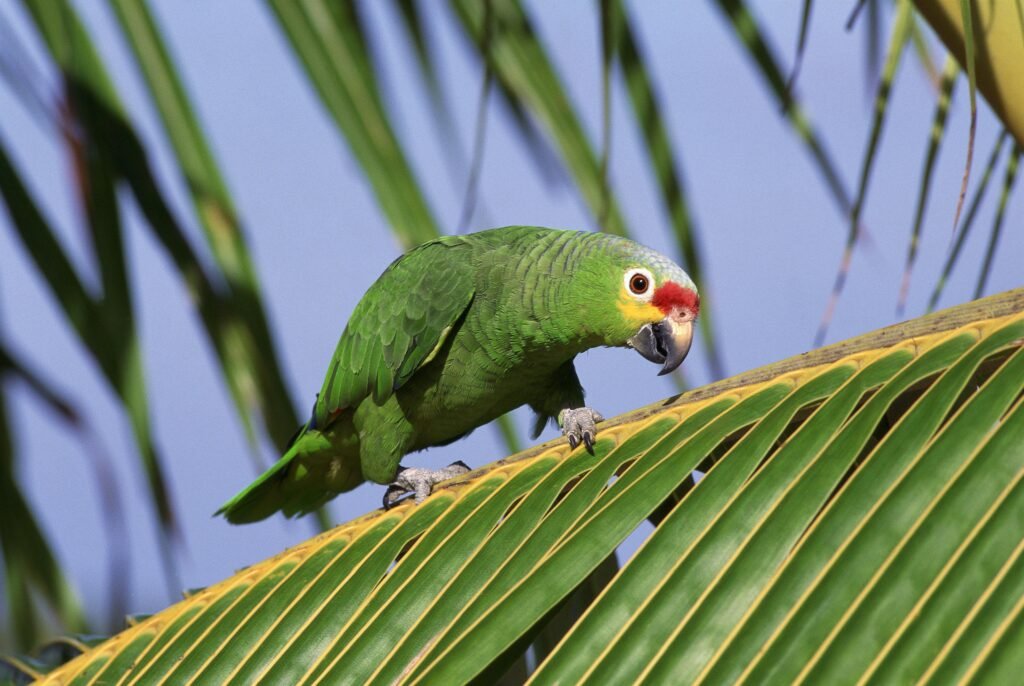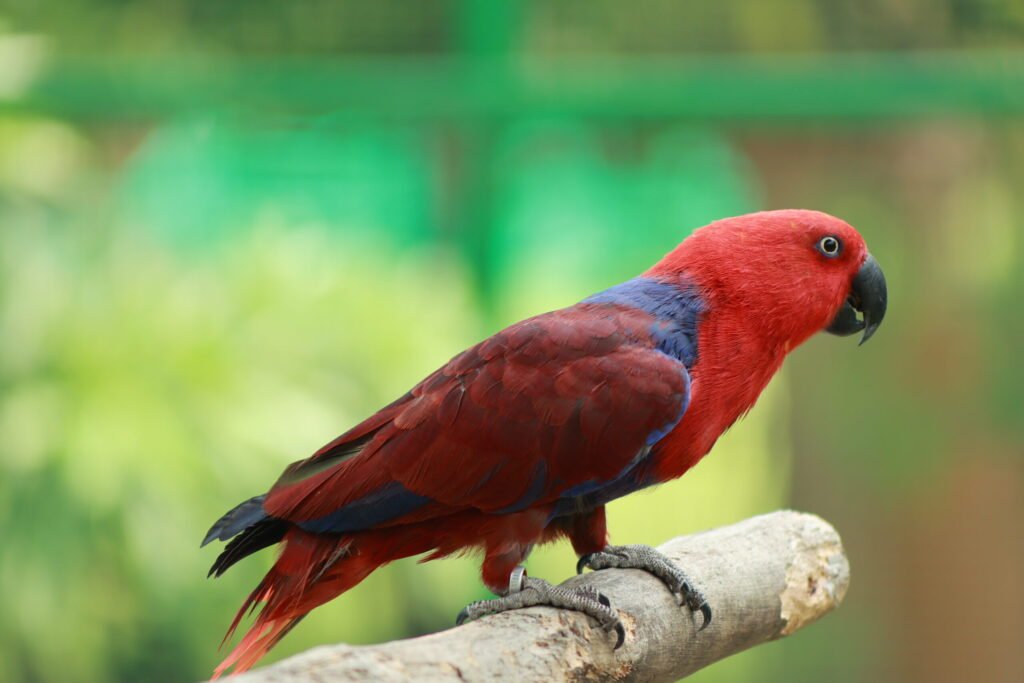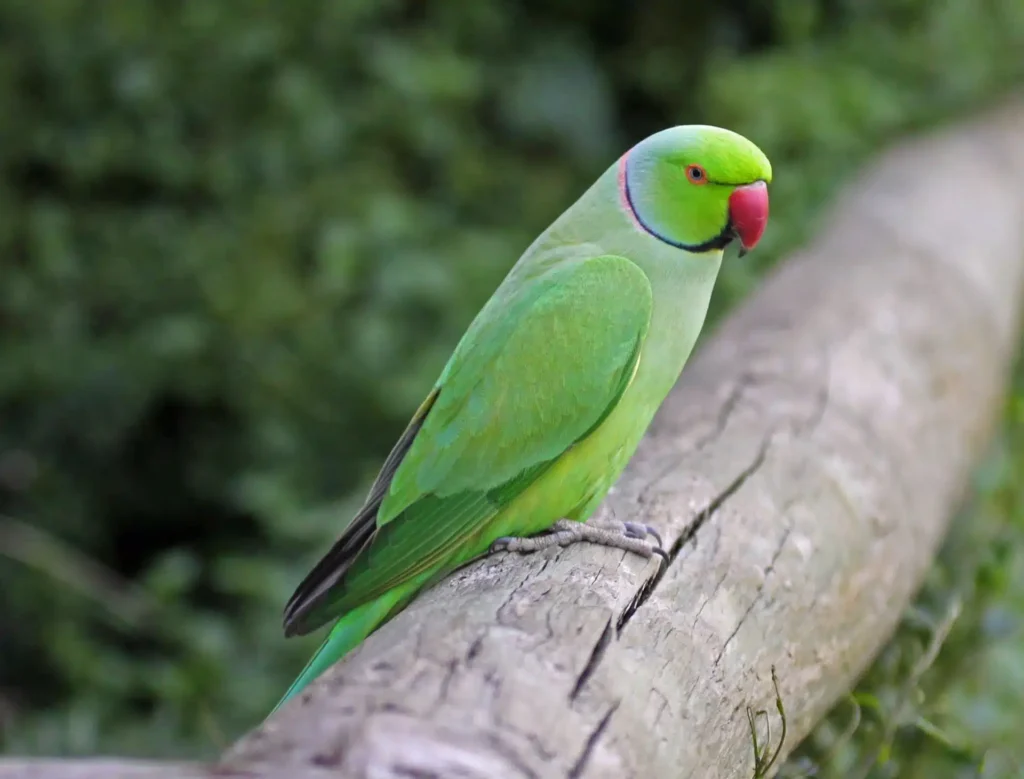Meet the Charming and Colorful Blue-Fronted Amazon Parrots
Introduction:
Blue-Fronted Amazon Parrots (Amazona aestiva) are known for their vibrant plumage, lively personalities, and remarkable vocal abilities. Native to South America, these parrots have become popular pets due to their intelligence, playfulness, and strong bond with human caregivers. Their stunning green feathers, accented with a blue patch on their forehead and splashes of yellow and red, make them visually striking and a delight to observe.
These medium-sized parrots typically measure around 38 cm in length and are known for their strong, curved beaks and expressive eyes. Blue-Fronted Amazons are social and affectionate birds that thrive on interaction and mental stimulation. They are excellent mimics and can learn to speak and perform tricks, making them engaging and entertaining companions.
In the wild, Blue-Fronted Amazons inhabit a range of environments, including forests, savannas, and woodlands. They are adaptable and resourceful, feeding on a varied diet of fruits, seeds, nuts, and vegetation. In captivity, they require a balanced diet, a spacious cage, and regular interaction to stay healthy and happy. With proper care, these vibrant parrots can live up to 40-50 years, offering long-term companionship and joy.
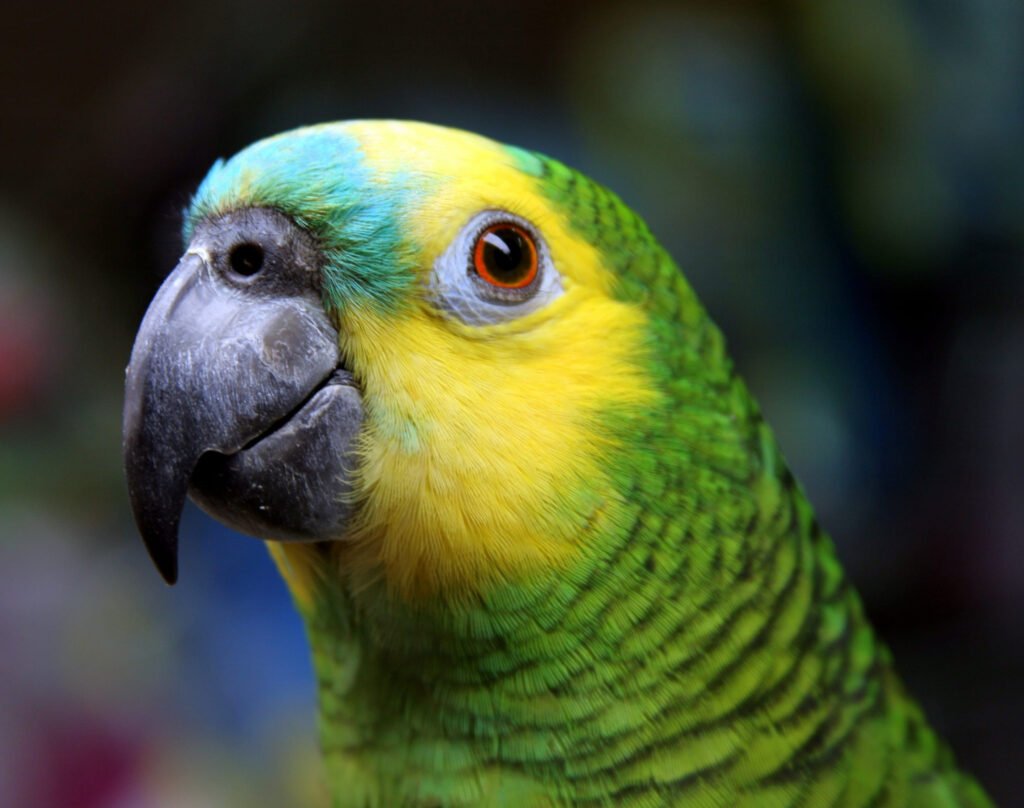
Facts:
| Fact | Details |
|---|---|
| Scientific Name | Amazona aestiva |
| Common Names | Blue-Fronted Amazon Parrot, Turquoise-Fronted Amazon |
| Year Discovered | 1758 |
| Kingdom | Animalia |
| Phylum | Chordata |
| Subphylum | Vertebrata |
| Class | Aves |
| Order | Psittaciformes |
| Family | Psittacidae |
| Genus | Amazona |
| Species | A. aestiva |
| Natural History | Native to South America, found in forests, savannas, and woodlands |
| Physical Information | Medium-sized bird, around 38 cm in length, with vibrant green plumage and blue, yellow, and red accents |
| Appearance | Green body, blue forehead, yellow and red accents, strong curved beak, and expressive eyes |
| Scientists Names | Described by Carl Linnaeus in 1758 |
| Region | South America |
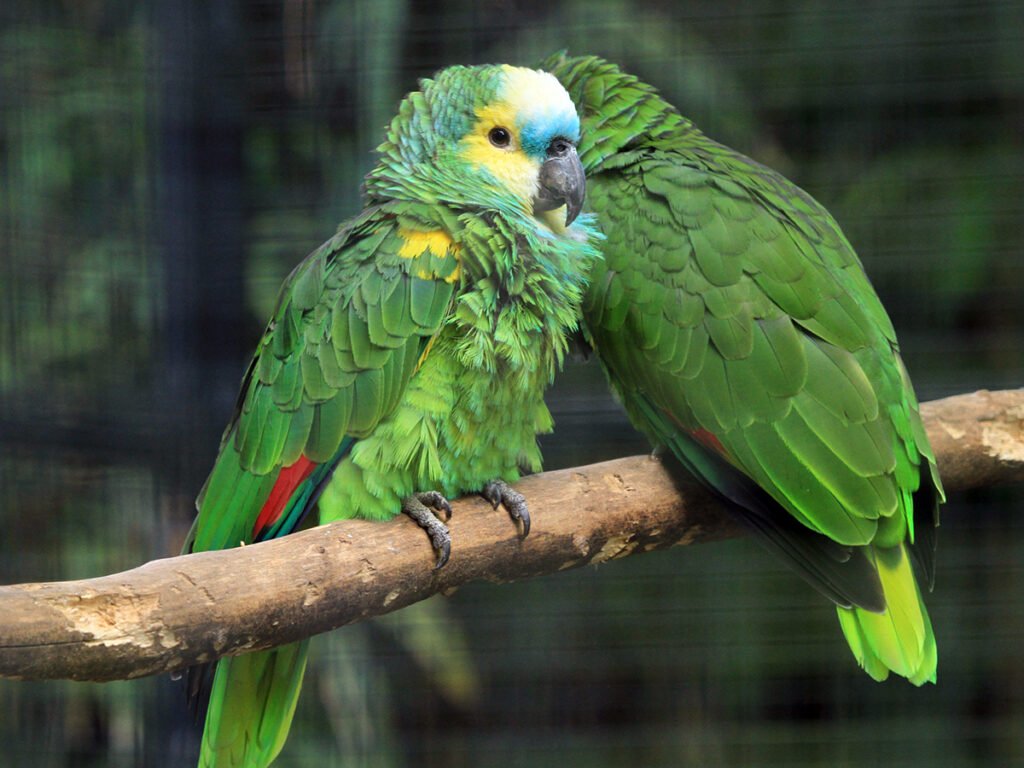
Appearance:
Blue-Fronted Amazon Parrots are medium-sized parrots, typically measuring around 38 cm in length. They have a predominantly green body with a distinctive blue patch on their forehead, yellow on their face and shoulders, and red markings on their wings. Their strong, curved beak and expressive eyes add to their striking appearance.
Distribution:
Blue-Fronted Amazon Parrots are native to South America, including countries such as Brazil, Paraguay, Argentina, and Bolivia. They inhabit a variety of environments, from forests and savannas to woodlands and scrublands. Their adaptability allows them to thrive in diverse habitats.
Habits and Lifestyle:
In the wild, Blue-Fronted Amazon Parrots are highly social birds that live in flocks. They are known for their playful and curious behavior, often seen engaging in vocalizations and acrobatics. Their diet consists mainly of fruits, seeds, nuts, and vegetation. As pets, Blue-Fronted Amazons require regular social interaction, mental stimulation, and a variety of toys to keep them entertained.
Care Guide:
Caring for a Blue-Fronted Amazon Parrot involves providing a spacious cage with plenty of perches, toys, and enrichment activities. Their diet should include high-quality pellets, fresh fruits, vegetables, and occasional nuts. Fresh water should always be available. Regular social interaction and out-of-cage time are essential for their well-being.
Physical Characteristics:
Blue-Fronted Amazon Parrots have a robust build with a strong, curved beak. Their plumage is predominantly green, with a distinctive blue patch on the forehead, yellow on the face and shoulders, and red markings on the wings. They have expressive eyes and a playful demeanor that endears them to bird enthusiasts.
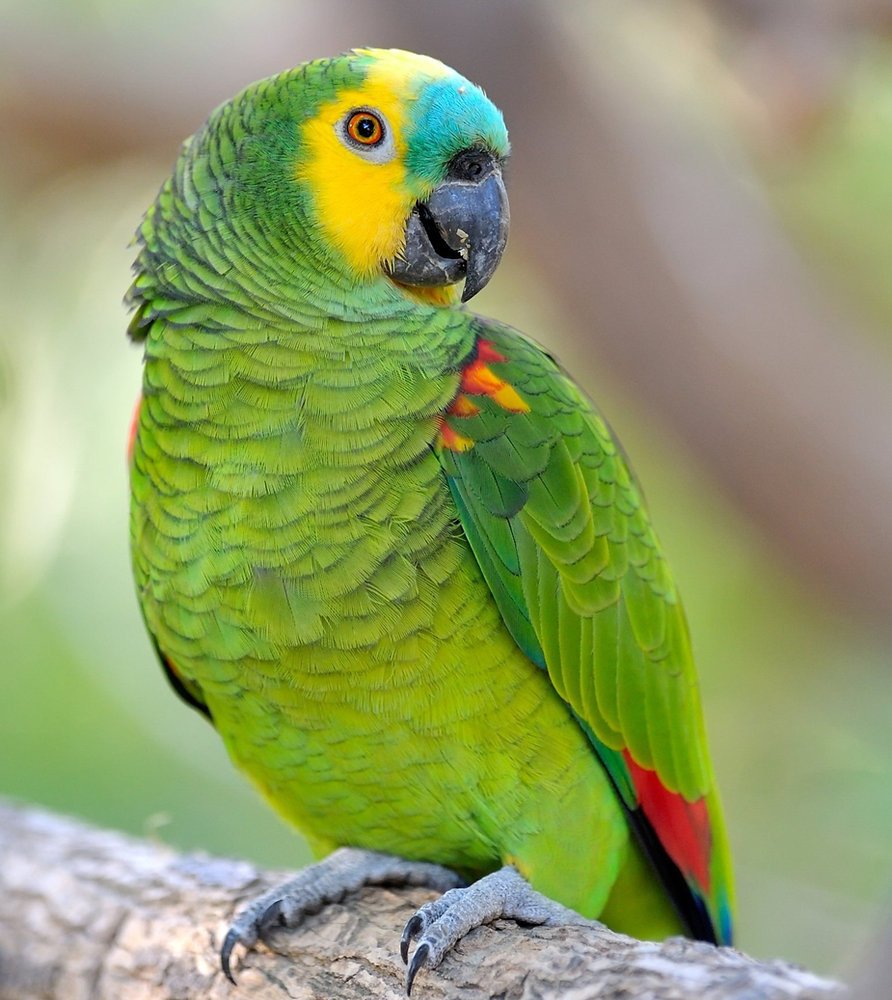
Diet and Nutrition, Foods to Avoid:
In the wild, Blue-Fronted Amazon Parrots feed on a variety of fruits, seeds, nuts, and vegetation. In captivity, their diet should include a mix of high-quality parrot pellets, fresh fruits, and vegetables. Foods to avoid include chocolate, caffeine, alcohol, avocado, and any foods high in salt, sugar, or fat, as these can be toxic to birds.
Breeding and Business:
Breeding Blue-Fronted Amazon Parrots in captivity requires a suitable environment and a deep understanding of their needs. They typically lay 3-4 eggs per clutch, with an incubation period of about 26-28 days. Providing nesting boxes and a nutritious diet rich in calcium and protein is essential for successful breeding.
Behavior:
Blue-Fronted Amazon Parrots are known for their intelligent and playful behavior. They form strong bonds with their human caregivers and enjoy interactive play. These birds require regular mental stimulation, training, and social interaction to prevent boredom and behavioral issues. They are excellent mimics and can learn to speak and perform tricks.
FAQs:
| Question | Answer |
|---|---|
| How long do Blue-Fronted Amazons live? | Blue-Fronted Amazons can live up to 40-50 years in captivity. |
| What do Blue-Fronted Amazons eat? | Their diet includes high-quality pellets, fresh fruits, vegetables, and occasional nuts. |
| Where can I see Blue-Fronted Amazons? | They are native to South America and popular as pets worldwide. |
| Do Blue-Fronted Amazons talk? | Yes, they are excellent mimics and can learn to speak and perform tricks. |
| How do Blue-Fronted Amazons socialize? | They are social birds that enjoy interacting with their flock or human caregivers. |
Related Birds or Mate:
Related species include other members of the Amazona genus, such as the Yellow-Naped Amazon and the Double Yellow-Headed Amazon, which share similar habitats and behaviors. Blue-Fronted Amazons are often compared to these species due to their vocal abilities and social behavior.
Type and Quality Prices:
| Type | Price Range |
|---|---|
| Pet Quality | $500 – $1,500 |
| Breeder Quality | $1,500 – $3,000 |
Factors Affecting Price:
Prices can be influenced by factors such as age, health, subspecies, and whether the bird is hand-raised or parent-raised. Geographical location and availability also play significant roles.
Price for the Bird in Different Regions and Countries:
| Region/Country | Price Range |
|---|---|
| United States | $500 – $3,000 |
| Europe | €450 – €2,800 |
| Australia | AUD 800 – AUD 4,000 |
| Asia | $600 – $3,200 |
References:
Categories: Companion Birds, Medium-Sized Parrots, Vocal Birds, South American Birds, Social Birds, Seed-Eating Birds, Pet Birds, Intelligent Birds
Views: 4

